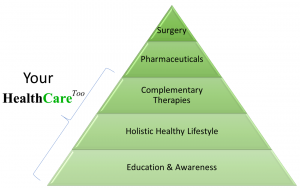Prescribe Food As Medicine

Nutritious, plentiful food plays an outsized role in helping people recover from major illness or live with a chronic condition. In addition to cancer treatment, which requires patients to eat high-calorie meals, people with cardiovascular illnesses may benefit from low-sodium food, while those with type 2 diabetes can better manage their disease with meals that are low in sugar and refined carbohydrates.
Across the country, an estimated one in eight Americans ― 42 million in total ― are food insecure. Not only does this mean that they may be experiencing hunger, but that the kinds of food they do eat are not nutritious enough to sustain an active, healthy life. At the same time, rates of chronic disease caused by poor nutrition are rising, and the more food insecure you are, the more likely you are to have chronic diseases like hypertension, coronary heart disease, hepatitis, stroke, cancer, asthma, diabetes and arthritis.
Despite its importance, food during an illness can often be an afterthought. Crucially, it is not covered by any medical insurance plan. Instead, people like Latney have to rely on nonprofits or charity to help them fill the nutrition gap, and not all cities have organizations that can help.
Our Model




